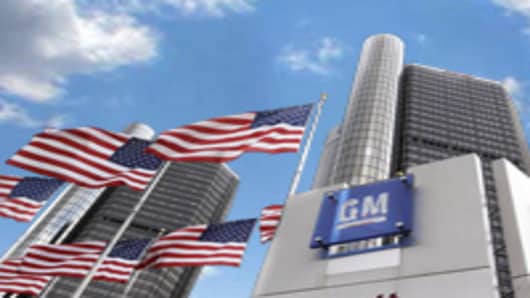General Motorsrecorded its highest profit ever last year, though fourth-quarter earnings and revenue fell short of expectations.
The 103-year-old company made $7.6 billion in 2011, up 62 percent from 2010.
Full-year revenue rose 11 percent to $105 billion. North America led the way with a $7.2 billion pretax profit. But problems surfaced that could hurt future earnings. GM lost $700 million before taxes in Europe, and lost $100 million in South America.
GM’s fourth-quarter profit was flat with 2010. GM earned $500 million, or 28 cents per share. Revenue rose 3 percent to $38 billion. Before one-time items, GM earned 40 cents per share.
Analysts expected earnings of 42 cents on revenue of $37.9 billion.
After the earnings announcement, the company’s shares fellin trading before the opening bell.
Overall through the entire year the company has made progress but there is more work to do in Europe and South America, Daniel Ammann, General Motors chief financial officer told CNBC.
“The company has more work to do all across the company to get to the efficiency we want,” he said.
Ammann says the company is working aggressively to get the business back to profitability.
Veteran White-Collar Staff Shifted to 401(k)s
GM also said it is moving its veteran white-collar workers to 401(k) retirement plans to reduce future pension liabilities.
About 19,000 U.S. salaried workers hired before 2001 with traditional defined benefit pension plans will be shifted to a defined contribution 401(k) as of Oct. 1, said Cindy Brinkley, head of human resources for GM.
They will keep their benefits accrued through Oct. 1, but will be shifted to the 401(k) system from that point. GM has the largest pension obligation of any U.S. company, Brinkley said.
U.S. salaried workers hired by GM after Jan. 1, 2001 are already in the defined contribution 401(k) type plan. Pension plans of retired salaried workers will not be changed, Brinkley said.
A defined benefit plan promises employees a certain monthly payout after retirement but leaves the corporation with the risk of funding the pension. A 401(k) promises a certain degree of corporate funding to match personal savings. It shifts the risk of managing the investment to the individual employee.
The company said its U.S. pension obligations were underfunded by about $10.8 billion by the middle of last year, which is seen as one of the biggest risks for investors. Pension liabilities were not addressed in GM’s 2009 bankruptcy.
GM is expected to update that figure on Thursday, when it reports fourth-quarter financial results. It said it would also detail how much it could save by changing the pension plans.
GM's fourth-quarter profit is expected to have been its weakest since its post-bankruptcy IPO in late 2010.
There will be no across-the-board pay increases for GM’s 26,000 U.S. salaried workers in 2012, but some workers will get richer bonuses based partly on the nature of their jobs, according to Brinkley. In 2012, U.S. salaried employees will get an extra week of vacation.
White-collar workers who have retired since Dec. 1, 2011 can voluntarily opt for a lump sum cash payment. The same will apply to all future white-collar retirees. The company said fewer than 500 people who had retired since Dec. 1 could opt for the cash payment.
Last year, GM and the United Auto Workers, which represents the company’s 49,000 hourly workers, agreed to consider ways to reduce the risk associated with GM's underfunded pension plans.
A letter included in the current GM-UAW contract suggests both sides would consider a plan allowing UAW retirees to voluntarily take lump sum cash payments in exchange for giving up their pension claims.
A growing number of companies are moving employees to 401(k) pension plans, according to James Klein, president of the American Benefits Council.



